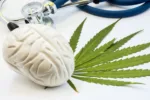Post Traumatic Stress Disorder and Addiction

One of the most common misconceptions surrounding addiction is the belief that those who battle addiction have chosen it as a lifestyle for themselves.
This couldn’t be further from the truth.
Addiction most often occurs as a result of an undiagnosed mental health condition or some other interior complication that has been left unaddressed. One such common risk factor for addiction is post-traumatic stress disorder.
Are trauma and addiction connected?
An estimated 70 percent of Americans over age 18 have experienced at least one traumatic event in their lifetime. Trauma is an emotional response to being the victim of or witness to a terrible or terrifying event. This could be violence or terrorism, sexual or physical abuse, childhood neglect or a natural disaster.
A history of trauma is an important risk factor for substance abuse and addiction. When trauma leads to substance abuse, successful recovery must address the trauma and reduce its impact on mood, mental health, sleep, emotions and well-being.
To accomplish this, a trauma-informed approach to treatment is essential. This approach to treatment involves ongoing training for treatment staff, who learn how to respond appropriately to symptoms of trauma in order to prevent re-traumatization and ensure that clients with a history of trauma feel safe, supported and empowered.
Post traumatic stress disorder
Post-traumatic stress disorder, or PTSD, is a psychiatric disorder characterized by a set of symptoms that interfere with the ability to function in normal, healthy ways. These symptoms reduce overall happiness in life and decrease feelings of well-being. Substance abuse and addiction commonly co-occur with PTSD.
In order to be diagnosed, an individual’s symptoms must meet the DSM-5 criteria for PTSD, which include the following:
- Re-experiencing, or involuntarily re-living the event
- Avoiding anything mentally connected to the event
- Arousal and increased anxiety at all times as a result of the trauma
- At least two symptoms affecting thought and emotion
Re-experiencing symptoms
These symptoms can cause problems with everyday routines and functioning, and can be triggered by a thought, feeling, situation, object or word.
Re-experiencing symptoms include:
- Flashbacks, or reliving the trauma in a very real way, often accompanied by sweating or an increased heart rate
- Nightmares
- Frightening thoughts that are difficult to shake
When these symptoms arise, they can be very challenging to shake off and move on from.
Avoidance symptoms
In an effort to protect themselves from facing traumatic memories, avoidance symptoms will often appear.
These include:
- Avoiding places, people, events or objects that serve as reminders of the trauma
- Suppressing and avoiding thoughts or feelings related to the trauma
Avoiding these situations is a defense mechanism of the brain to protect itself from the harmful effects of PTSD.
Arousal and reactivity symptoms
These are typically constant rather than triggered by a reminder of the event. These can take a major toll on one’s ability to eat, sleep, concentrate or perform other essential daily tasks.
Arousal and reactivity symptoms include:
- Being easily startled or frightened
- Feeling on edge or stressed out
- Having problems sleeping
- Having sudden outbursts of anger
Constantly having to deal with these symptoms can be very taxing on a person’s mental health and wellbeing.
Cognition and mood symptoms
These often leave individuals feeling detached from friends and family, leading to an overall sense of isolation or alienation.
Symptoms include:
- A loss of memory surrounding key features of the traumatic event
- Negative thoughts about oneself or the world
- Distorted feelings like guilt, shame or blame
- A loss of interest in activities once enjoyed
Not to mention that PTSD often leads to a co-occurring mood disorder like anxiety or depression as a result of PTSD’s effects.
Does PTSD cause addiction?
When you read the list of symptoms that arise following a traumatic experience, it’s no surprise to hear that many individuals who struggle with PTSD often attempt to self-medicate with substance use. In fact, it has been studied and proven that PTSD “may increase risk of substance use disorders (SUDs) because of attempts to self-medicate or to dampen mood symptoms associated with a dysregulated biological stress response.”
And, according to another source, “For individuals with dysregulated stress systems resulting from trauma, drugs of abuse can offer a reprieve from chronic hyperarousal and anxiety. Alcohol, benzodiazepines, opioids, and cannabis products have calming intoxication effects, some of which even serve to slow down the central nervous system (i.e., depressants).”
In other words, the chemical effects of drugs and alcohol can temporarily alleviate the chronic tension and anxiety that is caused by untreated trauma.
It goes without saying, however, that by turning to substance use as a means of handling symptoms of PTSD, these individuals are neither treating the post traumatic stress disorder nor addressing their symptoms — they’re simply introducing another issue into the mix.
Trauma informed treatment
Now, everyone who suffers from trauma will experience it differently; some people will be heavily impacted by it, while others might walk away minimally affected. Not everyone will experience all the symptoms, and of those who do experience symptoms, not everyone will seek to self-medicate and become at risk for addiction.
That being said, when treating PTSD, it’s crucial to one’s overall healing to seek a treatment program that addresses not only the trauma, but any underlying/co-occurring disorders as well. This includes anxiety, depression and any substance use tendencies. Only by addressing all the complications impacting your mental health will you be able to fully find freedom.
To get started on your healing journey today, reach out to Silvermist Recovery to learn more about our trauma-specific treatment programs. Contact us to learn more.






